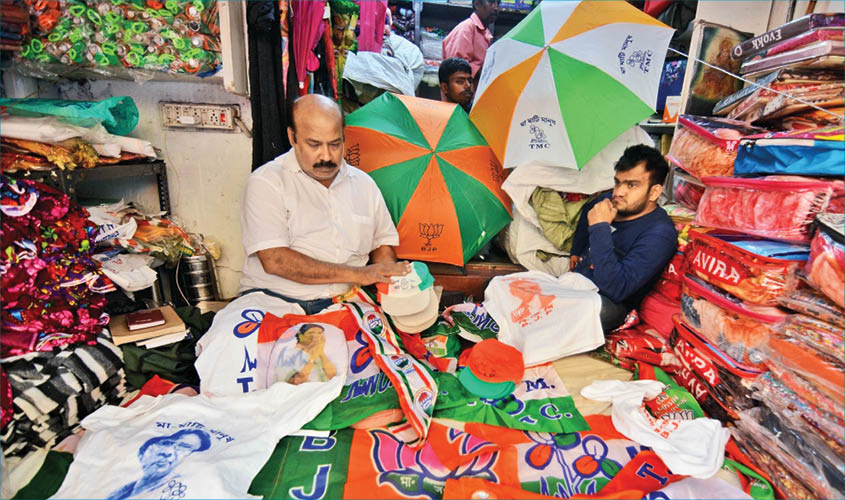Our democracy has taken root. But in my judgement our democracy is yet to reach its apotheosis.
By the end of May 2019, we shall know which party or parties will govern India. The Lok Sabha elections are the most monumental democratic undertaking on the globe. Nine hundred million Indians are on the voters’ lists. Three times the population of the United States of America. Seven hundred million are eligible to vote.
The main agency to conduct the elections is the Election Commission, which is headed by the Chief Election Commissioner and two election commissioners. Sunil Arora, the Chief Election Commissioner, is a retired IAS officer, belonging to the Rajasthan cadre. He had an outstanding career. The preparation for these elections began almost a year back with the assistance of State Election Commissions. 99% of these elections pass off without a shot being fired, without serious disorder, lawlessness, booth capturing, so common almost till the end of the 20th century. 99.9% of the results are accepted without challenge or dispute.
The amount of money each candidate spends differs from state to state and on funds political parties provide to the candidate. This is a well-guarded secret. The expenditure in most cases exceeds the limit laid down by law. Unlike Europe or America, for each Lok Sabha seat and Assembly seat names of several candidates are on the ballot paper. In many cases the list could have more than 20 names.
That our chaotic democracy works (work it does) is a miracle among miracles. May it be so for all time to come.
Most congenital sceptics who have doubts are not so sure that India will remain a democracy. This is a perilous illusion. Of course, our democracy has taken root. These roots go down very deep.
For the next nine weeks India democracy will resemble a political pressure cooker. The assuring reality is that the lid of the pressure cooker will not be allowed to take off. In my judgement our democracy is yet to reach its apotheosis.
The most frequently and tiresome question (I ask it too) is which party will come out the winner. I worked in Prime Minister Indira Gandhi’s office from 1966 to 1971. Three Lok Sabha elections were held during this period. If my memory serves me right, she gently admonished us for wasting time on this electoral infantilism.
* * *
China for the fourth time locked a proposal at the UN Security Council to name Jaish e Mohammed leader Masood Azhar as a global terrorist.
The Ministry of External Affairs in a statement expressed its disappointment at the outcome. What else did the Ministry of External Affairs expect? Did it imagine that China would let down its ally and trusted friend Pakistan? China had no qualms in defying the other 14 members of the Security Council. I have a better idea of how the minds of Communist leaders work.
The idealist in Pandit Jawaharlal Nehru could not comprehend how Mao Tse Tung and his closest associates, Marshal Chu De, President Lin Shaiao Chi and Chou En Lai looked at India. They looked at India as an adversary. Even during the peak of the Hindi-Chini-Bhai-Bhai era, China never accepted Kashmir as an integral part of India. For years Nehru pressed again and again to seat Mao’s China as a permanent member of the UN Security Council. To no avail. China will never agree to India becoming a permanent veto wielding member of the Security Council. I am not suggesting that we should give up trying. At the same time we should not skirt diplomatic reality.
Our experience in conducting foreign policy and diplomacy is only 70 years old. China’s experience is centuries old. The new tactic China has developed is to try and play honest broker for finding a solution for Kashmir. Nehru as late as 1964 was willing to let third parties get involved in finding a solution for Kashmir. So did Lal Bahadur Shastri, at Tashkent.
* * *
India lost the five-match one day series to Australia, 3-2. Virat Kohli spoke as a great cricketer—he had no hesitation in saying in a TV interview that the Australians deserved to win, as they performed better than India, under pressure. No excuse, no obfuscation.

